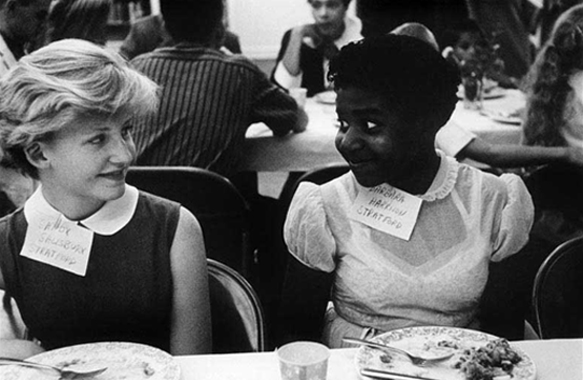Don’t imagine that being a racist is something that only happens to other people.
If there’s anything our fraught national dialogue on race has taught us, it’s that there are no racists in this country. (In fact, not only do multiple studies confirm that most white Americans generally believe racism is over — just 16 percent say there’s a lot of racial discrimination — it turns out that many actually believe white people experience more discrimination than black people.) It’s a silly idea, of course, but it’s easy to delude ourselves into thinking that inequality is a result of cultural failures, racial pathology and a convoluted narrative involving black-on-black crime, hoodies, rap music and people wearing their pants too low. To admit that racism is fundamental to who we are, that it imbues our thinking in ways we wouldn’t and couldn’t believe without the application of the scientific method, is infinitely harder. And yet, there’s endless evidence to prove it.
For those who recognize racism is real and pervasive, it’s also comforting to believe that discrimination is something perpetuated by other people, overlooking the ways we are personally complicit in its perpetuation. But fruitful conversations about race require acknowledging that racism sits at the very core of our thinking. By something akin to osmosis, culturally held notions around race mold and shape the prejudices of everyone within the dominant culture. People of color unwittingly internalize these notions as well, despite the fact that doing so contributes to our own marginalization. Most of us know the destructive outcomes systemic racism produces (higher rates of poverty, incarceration, infant mortality, etc.). Accepting that implicit bias is happening at every level makes it awful hard to chalk those issues up to black and brown failure.
Here’s a look at just some of the ways our internalized biases add up to devastating consequences for lives, communities and society.
1. College professors, across race/ethnicity and gender, are more likely to respond to queries from students they believe are white males.
2. White people, including white children, are less moved by the pain of people of color, including children of color, than by the pain of fellow whites.
3. White people are more likely to have done illegal drugs than blacks or Latinos, but are far less likely to go to jail for it.
4. Black men are sentenced to far lengthier prison sentences than white men for the same crimes.
5. White people, including police, see black children as older and less innocent than white children.
6. Black children are more likely to be tried as adults and are given harsher sentences than white children.
7. White people are more likely to support the criminal justice system, including the death penalty, when they think it’s disproportionately punitive toward black people.
8. The more “stereotypically black” a defendant looks in a murder case, the higher the likelihood he will be sentenced to death.
9. Conversely, white people falsely recall black men they perceive as being “smart” as being lighter-skinned.
10. A number of studies find white people view lighter-skinned African Americans (and Latinos) as more intelligent, competent, trustworthy and reliable than their darker-skinned peers.
The implications of these findings are hugely significant, and lend credence to the often expressed feeling of tokenization by black people who are deemed smart, successful or intelligent by whites. That is, the feeling that white people perceive certain African Americans as exceptional or “not like the others.” It also adds an important layer to the conversation around colorism, which privileges light skin above darker skin both within and outside of communities of color. (And has helped skin lightening products become a booming global industry in places like India, the Philippines and some parts of Africa.)
Unfortunately, I could go on and on. About how, for example, black students — even preschoolers — are far more likely to be suspended from school than white students. (That fact is even truer for dark-skinned black students.) The same products, when displayed by black hands on the Internet, are less likely to sell than when they are held by white hands. One study even found that white people basically think black people are paranormal entities, an idea so ludicrous it begs that you read an explanation, here.
Racism is comfortable and easy; it helps us make quick, baseless decisions without the taxing act of thinking. The next time you catch yourself having a racist thought or feeling, try not brushing it off. Ask yourself where it came from, what it means and how you can unpack it. Because if the evidence above suggests anything, it’s that critical self-examination is our only hope of moving the needle at all on this thing. Stop imagining that being racist is something that only other people do, and start looking closely at your own beliefs.
Especially the ones you’ve never admitted to yourselves that you hold.
Kali Holloway is the Associate Editor of Media and Culture at AlterNet.
This piece was reprinted by EmpathyEducates with permission or license. We thank the Author, Kali Holloway for her kindness, observations, research and what we believe is a vital reflection. We are also grateful to AlterNet for its vibrant discussions.












Leave A Comment